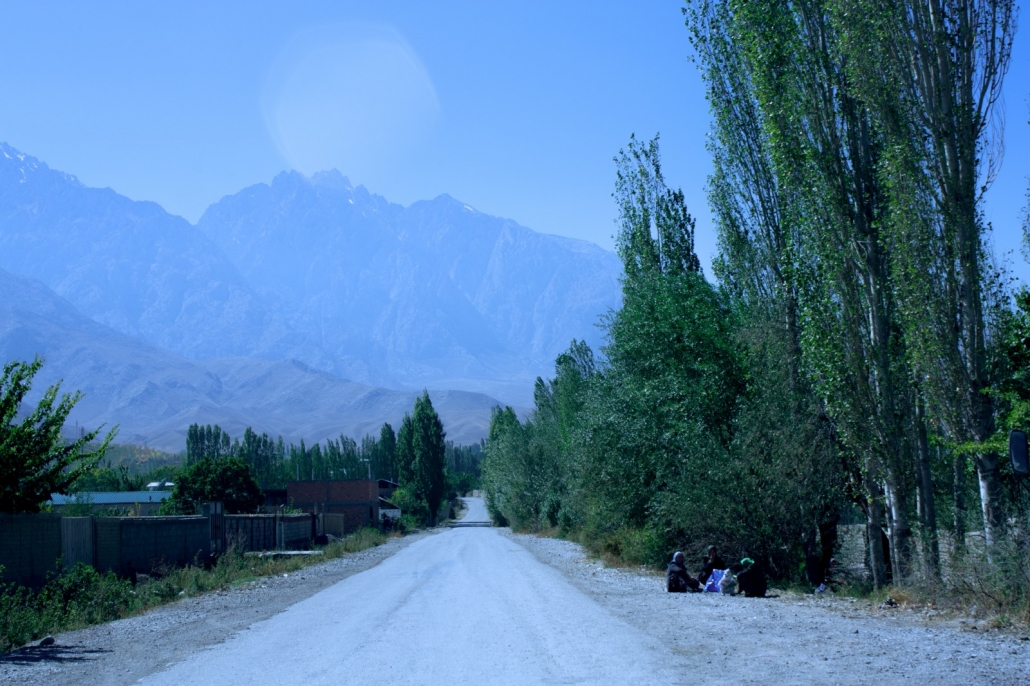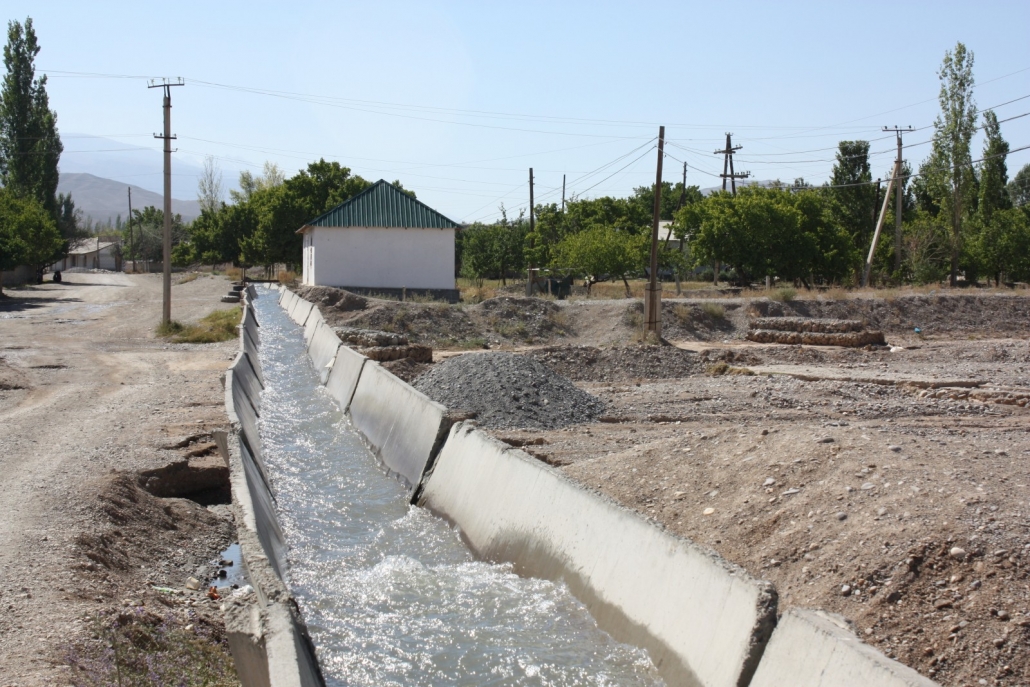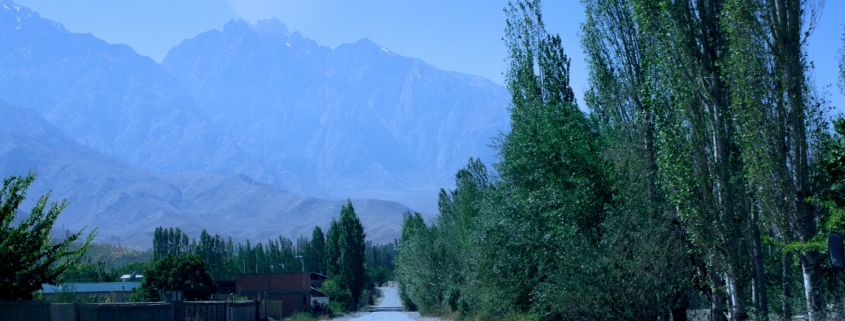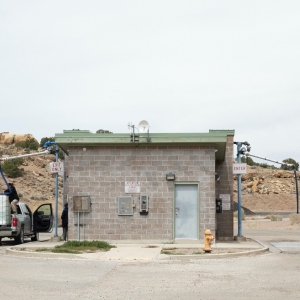HotSpots H2O: Water and Land Disputes Turn Violent Along Ambiguous Kyrgyz-Tajik Border

Photo courtesy of Bruce Pannier
Christian Thorsberg, Circle of Blue
The border shared by Kyrgyzstan and Tajikistan is a strip of hard-edged hills and scoured ridges. Apricot orchards occupy scarce flatlands and oxen graze on thinning fields of green.
Nearly half of the 600-mile border remains unofficial and non-delineated, a Soviet-era ambiguity with consequences that reverberate today. Drive for an hour through Kyrgyzstan’s southwestern Batken province and one might cross between the two countries a dozen times, depending on where your GPS was configured. Adding to the complexity, pockets of Tajik territory are nested within Kyrgyzstan.
Distrust among the region’s ethnic groups is exacerbated by extreme water insecurity. Snowy peaks in the distant Turkestan and Alai ranges are the source of fresh water in arid Batken, where irrigation canals and sanitation networks are vital yet crumbling. Most essential is the Golovnoy Water Intake Center, the dilapidated and lone water distribution infrastructure in the border province.
Tensions boiled over in late April. Tajiks in Tajik territory installed a camera to monitor Kyrgyz activity at Golovnoy, which is in Kyrgyzstan. Kyrgyz residents responded by throwing rocks, as did Tajiks. The incident quickly escalated into the burning of homes, shops, schools, checkpoints and other Kyrgyz village buildings. Border guards and security forces from both countries became involved and exchanged small-arms fire. Reports of a Tajik helicopter attack were called in by Kyrgyz authorities.
Tampering with the water supply, or any action that could be construed as such, is “the most dangerous thing you can do out there,” says Bruce Pannier, a correspondent with Radio Free Europe/Radio Liberty. “This waterway is their lifeline,” he says, “and the problem last week shows you the level of trust out there.”
Since a ceasefire agreement was signed on April 30, over 40 deaths, 200 injuries, and 50,000 evacuations have been reported, making it one of the border’s most explosive and violent weekends.

Photo courtesy of Bruce Pannier
Easing tensions will not be easy. According to Pannier, there is a discrepancy between the priorities of Batken residents and national politicians. When he visited both Kyrgyz and Tajik villages in 2015 ahead of Kyrgyz parliamentary elections, residents made clear their biggest concern: water security. Demarcating the border might be near-impossible, Pannier says. But agreeing to mutually beneficial water network improvements would meet everyone’s needs and figure as a key step toward peace in the region.
Domitilla Sagramoso, an expert on Russian foreign policy and security at King’s College London, identifies water economics and infrastructural upkeep as barriers to water security.
Upstream, high-elevation countries like Kyrgyzstan and Tajikistan are home to the mountain streams that feed the region’s watersheds. But the countries’ ability to distribute and exchange water and energy is bogged down by under-performing reservoirs and dams. “A lot of water is being lost throughout the system,” Sagramoso says. “It’s like a dripping tap. So much could be saved by just fixing the pipes.” Disagreements over construction, like the controversial Rogun Dam, highlight prolonged distrust and apprehension over a fragile water landscape.
Politics aside, the overarching issue, Sagramoso says, is global warming.
Glacial melt and retreat is slowing the flow of the Syr Darya and Amu Darya, the region’s major rivers. When reservoirs and dams are built, still water becomes more susceptible to algal blooms and evaporation.
“You can fix the infrastructure, you can reach agreements, but the big challenge is climate change,” Sagramoso says. “There is a tension that results from poor infrastructure and economy management, but the fact that there isn’t enough water is going to increasingly be the problem that flares up.”
Christian Thorsberg is an environmental writer from Chicago. He is passionate about climate and cultural phenomena that often appear slow or invisible, and he examines these themes in his journalism, poetry, and fiction.






Leave a Reply
Want to join the discussion?Feel free to contribute!